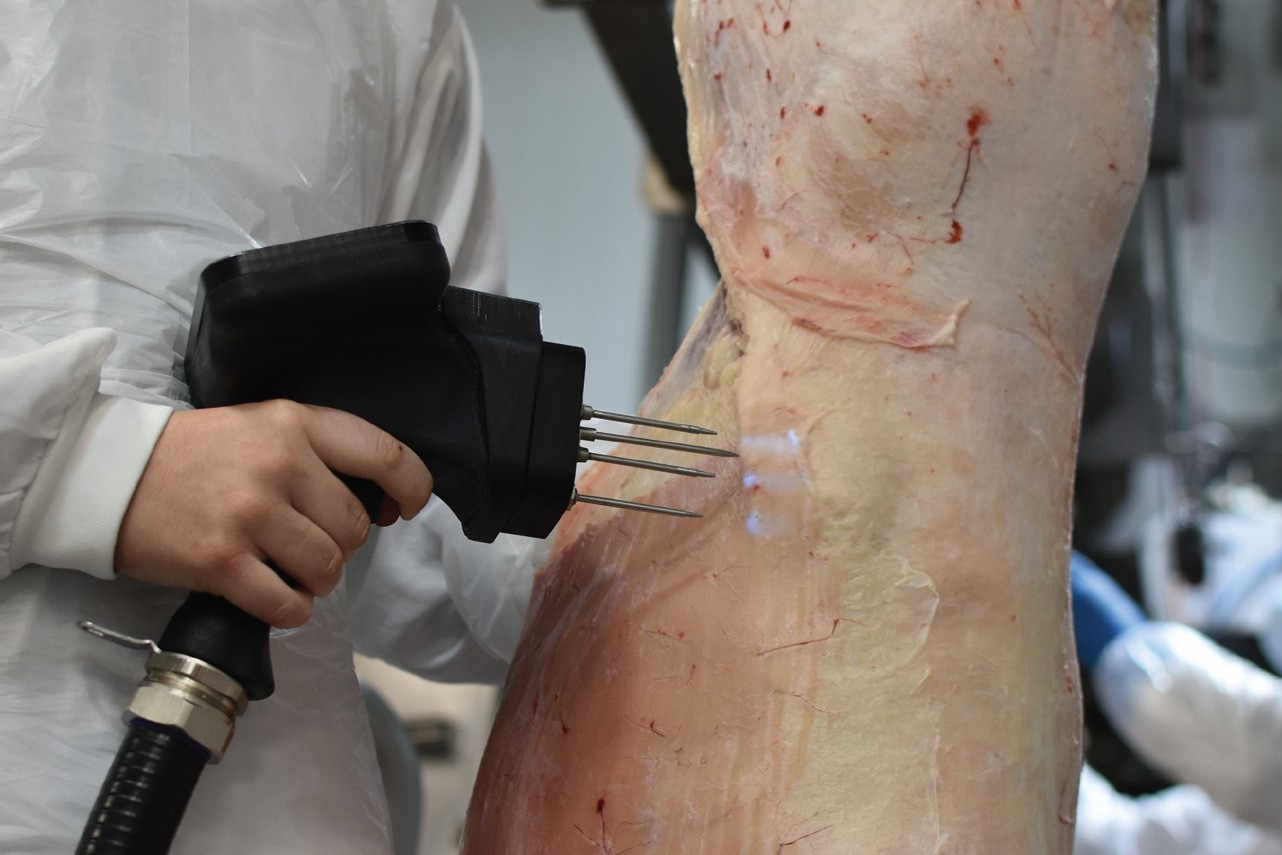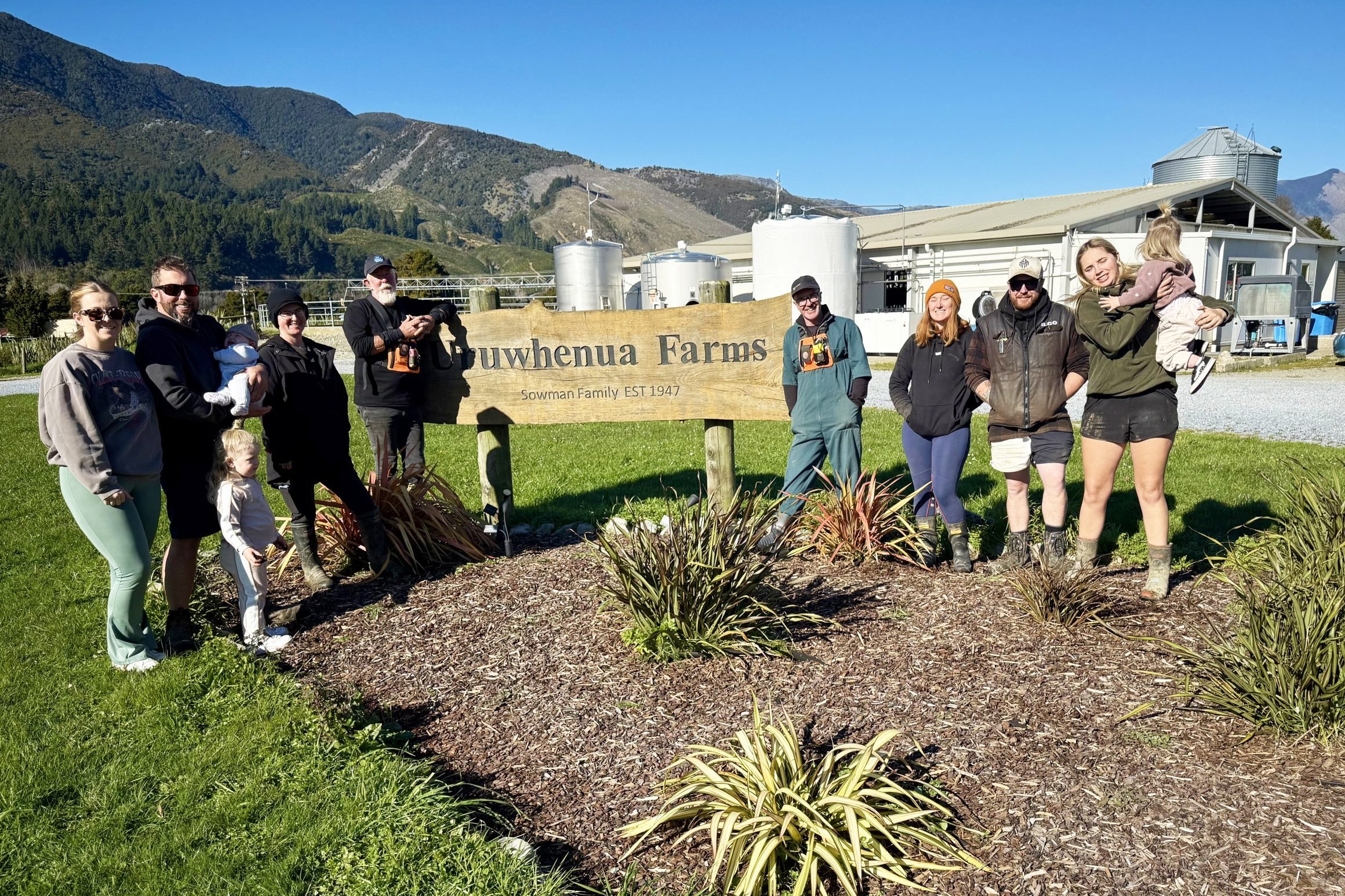Checking intra-muscular fat on the chain
Meat companies are testing equipment that can gauge intramuscular fat in carcases immediately after slaughter. Tony Leggett reports.

The potential to reward farmers on the eating quality of their lamb and beef has arrived in New Zealand.
Several New Zealand meat companies are investigating ground-breaking, meat probe technology which accurately predicts the level of intramuscular fat (IMF) in carcases at chain speed just after slaughter.
IMF is a primary indicator of eating quality and being able to group carcases at pace before they enter a chiller has eluded meat companies until the development of the probe by MEQ Solutions, an Australian agtech start-up based at Gundagai, New South Wales.
Alliance Group has been trialing the MEQ probes since early this year at its Smithfield and Pukeuri plants in the South Island. Silver Fern Farms has also checked out the probes, including visiting a plant in Tasmania which has been operating the probes.
Alliance Group chairman Murray Taggart says the company is satisfied with the accuracy of the probes at chain speed. Installation of MEQ probes in its plants represents a major breakthrough in ensuring acceptable and consistent eating quality for its premium lamb and beef brands, he says.
“Our Pure South Hand-Picked lamb and beef, Silere and Lumina programmes tap into the growing demand from discerning consumers who are willing to pay significant premiums if we can deliver consistently good eating quality,” Taggart says.
“The challenge in the past has always been the (eating quality) consistency, but with these new probes measuring IMF on the chain after slaughter, we can eliminate that variability,” he says.
Taggart says that will mean better rewards for farmers who supply high IMF lambs and cattle. It will also mean the data they receive can be incorporated into genetics breeding programmes to lift IMF levels and improve its consistency.
“MEQ technology is a very exciting tool because it allows Alliance to reward farmers by helping drive improvements behind the farm gate,” he says.
The probe is inserted directly into the lamb loin area or at the beef forequarter cut and uses light to measure the level of IMF as it is withdrawn from the site. Training in their use takes just a few hours.
The IMF data captured by the probe is stored for each carcase for relaying back to the supplier.
Taggart says the benefit of being able to operate at chain speed at the initial grading station means carcases can be separated before entering the chiller, reducing double-handling, saving labour and storage space.
“The MEQ technology compliments the ViaScan yield grading technology adopted several years ago by Alliance Group and also the traditional carcase grading systems used.”
From November, Taggart says MEQ probes will be installed at two Alliance Group plants per month in time for the rise in lamb slaughter for the current season.
Bull breeder and Wairarapa hill country farmer Bryan Bendall says the MEQ probes are excellent news for farmers.
“At last, we can be rewarded for the eating quality of our cattle and lambs and for stud breeders, that IMF data will be valuable for use in our breeding programmes too,” he says.
Alliance Group chief executive Willie Wiese says IMF and ageing are the two largest contributors to the sensory experience when eating meat.
In pasture-based livestock production systems, IMF has a strong correlation with polyunsaturated fat including Omega fatty acids. High IMF levels represent the healthy fats, which are good for nutrition.
He says the probes will provide objective, measurable data and insights to give farmers visibility about the quality of the meat from all their livestock supplied across an entire season.
“Farmers will then be able to make informed behind the farm gate decisions about on farm practices and breeding programmes to maximise returns to the farm,” Wiesse says.
Spectral analysis
MEQ Solutions’ meat probe technology utilises spectral analysis to determine the intramuscular fat (IMF) percentage of meat.
The innovative technology amalgamates physics, chemistry, and biology with machine learning to provide meat processors with a benchmark to improve the eating quality of their product.
The company is based across the Tasman in Gundagai, New South Wales, and has worked closely with the local Gundagai Meat Processors plant during the development of the probe.
By providing consistently high eating quality lamb, the company was able to pay lamb producers supplying the plant an extra $325,000 in the first year after the probes were installed in July 2021.
MEQ achieved accreditation for its probes within the Aus-Meat grading system for the measurement of intramuscular fat in lamb in 2022 and for beef marbling in February this year.
The two Gundagai companies have also created a producer portal app that provides farmers with almost instant access to the readings from each slaughter mob, so they can improve or maintain their meat quality score to lift their returns.
The company recently appointed a general manager for Australia and New Zealand to oversee its operations. Keith Byrne joined MEQ in late October, about the same time the company completed a successful $6.5 million capital raise to help fund its international business expansion plans.
MEQ is also testing the capacity of its technology to capture more information from each carcase, including nutritional value.




